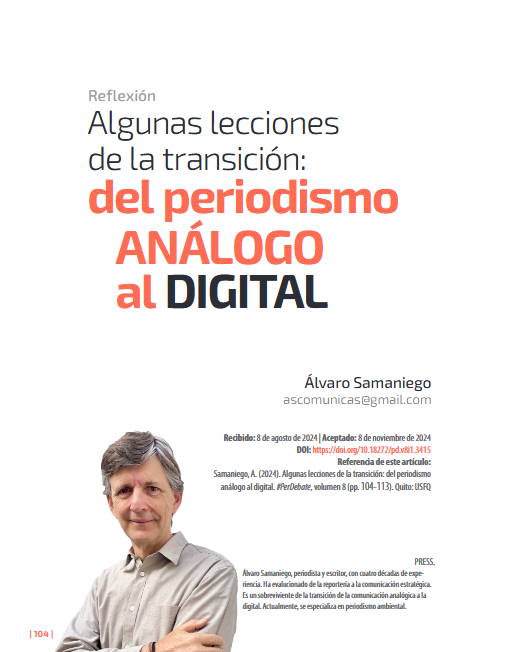Some lessons from the transition: from analogue to digital journalism
Main Article Content
Abstract
This article reflects on the transition from analog to digital journalism, highlighting the author’s personal experiences. It discusses how technology has transformed reporting, from teletypes to artificial intelligence, and how this evolution has impacted the immediacy and quality of information. The author analyzes the advantages and disadvantages of this shift, noting that although digitalization has democratized access to information, it has also intensified issues such as post-truth and information overload. Additionally, the impact of algorithms and artificial intelligence on perception of reality and social polarization is examined. The article emphasizes the need for digital literacy to address these challenges and reflects on the future of journalism in the digital age.
Article Details
References
Benkler, Yochai. (2006). The Wealth of Networks: How Social Production
Transforms Markets and Freedom. Yale University Press.
Carr, Nicholas (2010). The Shallows: What the Internet Is Doing to Our Brains. W. W.
Norton & Company.
Castells, Manuel. (1996). The Rise of the Network Society. Wiley-Blackwell.
Shirky, Clay. (2008). Here Comes Everybody: The Power of Organizing Without
Organizations. Penguin Books.



